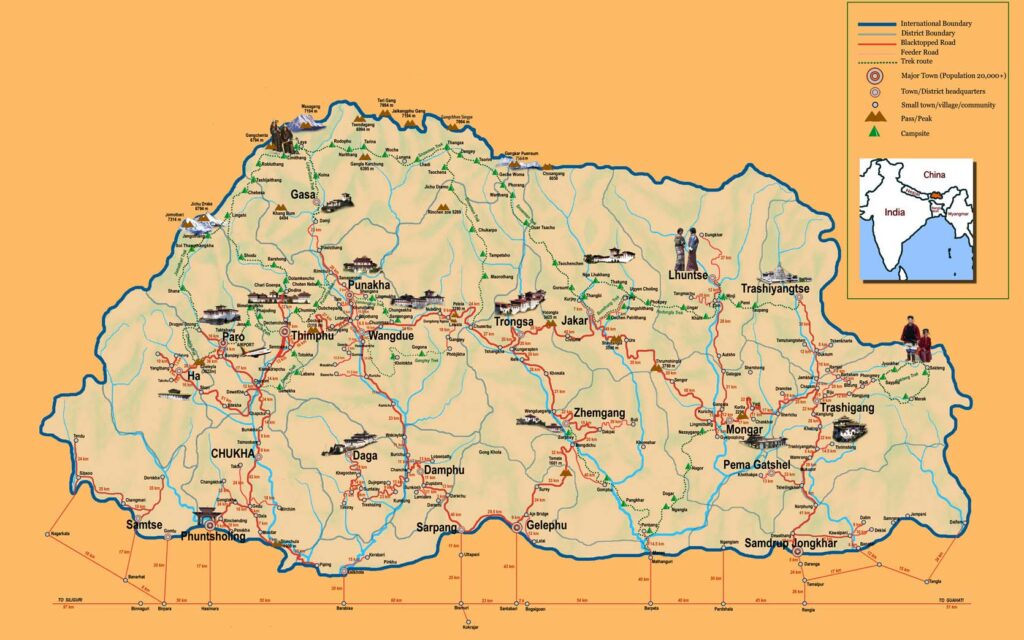
Bhutan

Bhutan, a landlocked country in South Asia, is situated in the eastern Himalayas. It shares borders with India to the south, east, and west, and with China to the north. The country’s geography ranges from subtropical plains in the south to subalpine and alpine regions in the north. The elevation varies widely, from 100 meters above sea level in the south to over 7,560 meters in the north, where peaks like Gangkhar Puensum, the highest unclimbed mountain in the world, rise.
Bhutan’s climate is diverse due to its varying altitudes. The southern regions experience a humid subtropical climate with hot summers and mild winters, while the northern areas have an alpine climate with cold winters and cool summers. Monsoon rains from June to September bring significant precipitation, crucial for Bhutan’s agriculture.
Culture and People: Bhutanese culture is deeply rooted in Mahayana Buddhism, which is the state religion. The country’s unique culture and traditions are preserved through a policy of promoting Gross National Happiness (GNH), prioritizing spiritual and cultural values over material wealth. Festivals, or Tsechus, are integral to Bhutanese culture, celebrated with masked dances, religious ceremonies, and vibrant social gatherings.
The population of Bhutan is approximately 800,000 people, comprising several ethnic groups. The Ngalops and Sharchops are the two main ethnic groups, with distinct languages and customs. Dzongkha is the national language, but several regional languages and dialects are also spoken. Traditional attire, including the gho for men and kira for women, is widely worn, reflecting Bhutan’s cultural identity.
Economy and Development: Bhutan’s economy is primarily agrarian, with agriculture, forestry, and livestock farming forming the backbone. Rice, maize, wheat, and potatoes are staple crops, while fruits like apples and oranges are also grown. Hydroelectric power is a significant contributor to the economy, with Bhutan exporting electricity to India, its largest trading partner.
Tourism is a growing sector in Bhutan, contributing to revenue and employment. The government regulates tourism through a policy of high-value, low-impact tourism to preserve Bhutan’s environment and culture. Bhutan has made strides in education and healthcare, with free education and healthcare services provided by the government.
Environmental Conservation: Known for its commitment to environmental conservation, Bhutan is one of the few countries in the world with a negative carbon footprint. The constitution mandates maintaining at least 60% of the country under forest cover for all time, protecting biodiversity and natural habitats. Conservation efforts are supported by community-based initiatives and sustainable development practices.
Political System: Bhutan is a constitutional monarchy with a parliamentary democracy. The King of Bhutan, Jigme Khesar Namgyel Wangchuck, is the head of state, and the Prime Minister heads the government. The transition to democracy began in 2008, with the introduction of the Constitution and the first parliamentary elections.
Bhutan, with its rich cultural heritage, pristine natural landscapes, and unique development philosophy centered around happiness and sustainability, continues to intrigue and inspire visitors from around the world. As the country balances modernization with tradition, Bhutan remains a beacon of cultural preservation, environmental stewardship, and holistic development.